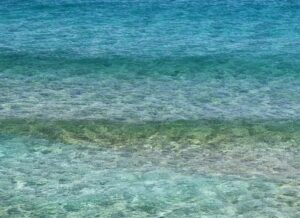For aquarium owners, there’s a possibility that you’ve stumbled upon the term silicate. How do they relate to vivariums?
“And what are silicates in water?”
Before we go further in-depth, you’re going to have to learn about silicates first.
Silicates Definition: According to Wikipedia, silicates are any members of the anions. Silicates are consist of oxygen and silicon.
Basically, brown or gravel algae.
Now, what happens when they are in the water, and why does that matter for the ocean and aquarium owners?
In this article “What Are Silicates In Water,” you will learn:
- The brief summary of silicon
- The effects they have on water
- Useful information in regards to silicates and water
Below is the table of contents for this silicates article in case you’re in search of a specific section.
Disclaimer: There may be Amazon affiliate links on VivariumTips.com – When users purchase through an affiliate link, there will be no additional cost to the purchaser. Instead, I will earn a commission from your purchases.
Brief Summary of Silicates

Did you know?
Silicon is the second most ample element on earth right after oxygen.
Studies have shown that they are likely to be present in all organisms. They usually occur in the form of “hydrated amorphous silica” which is also known as ‘opal.’
The Purpose of Silicates
To produce structural materials in single-celled organisms like plants and animals – this element is extremely necessary for the process.
Did you know?
90% of the Earth’s crust consists of silicate minerals.
Silicates are known as aggravates that have a silicon-oxygen anion.
They are generally joined with various metals such as:
- Calcium
- Magnesium
- Iron
- Potassium
- Sodium
- Aluminum
- and others in order to create silicate salts
Most silicate salts are just somewhat dissolvable in water and are generally circulated in nature, however sodium silicate is an exception.
Various minerals contain silicates: asbestos, mica, powder, magma, and many more.
The Effects Silicates Have On Water
If you didn’t know, silicates can have several effects on water. Let’s discuss it from an aquarium owner’s perspective.
- Silicates can benefit the water by creating a source of food.
- They can also cause water quality problems for aquarium owners due to overgrowing.
Like yin and yang, there are good and bad to silicates.
Silicates Presenting As Colloids
If silicates are present as colloids, then it can cause a lot of difficulties managing (only if silicates can be presented in one solution).
For aquarium owners, you should understand the natural capacity of silicates in a water biological system.
Aquatic Plants And Silicates
Usually – in water frameworks, green growth (aquatic plants) is essential for the ecosystem. The changes in inorganic supplements and carbon dioxide into natural biomass can cause a lot of changes to the environment.
The green growth biomass (thickness) is controlled by a few, conceivably restricting factors as you can see right below.
For example, these factors can be:
- Temperature
- Light Power
- Supplement Fixations
These types of growth require phosphorus and nitrogen as supplements. This also includes diatoms which are a type of algae that require silicate for development.
This can benefit the ecosystem in various ways. Zooplankton can benefit off of this while fish can benefit off by consuming the planktons.
If these algae can benefit the bottom of the food chain, then it will also benefit the top of the pyramid. That’s how important it is.
Silicates And Metals
In addition, silicates can also suspend metals by sequestration.
This is the reason for the controlled utilization of silicates in order to control destructiveness and to diminish the convergences of metals like lead and copper in water conditions.
What Are Silicates In Water?
When silicates are in the water, they serve as a biological function to the ecosystem.
By being in the water, they can create algae. This can help feed many living creatures.
Just imagine the food chain – it probably helps the entire ecosystem.
- Planktons
- Fish consuming planktons
- Bigger fish consuming the smaller fish
And it goes on.
From VivariumTips,

If you have any questions or feedback, feel free to comment right below. I hope you learned a few things about silicates. Don’t hesitate if you ask questions. I’ll be glad to improve this article for future readers.
For articles similar to “What Are Silicates In Water,” check out:
You can support VivariumTips by sharing any of the articles on this website with a friend or community!
